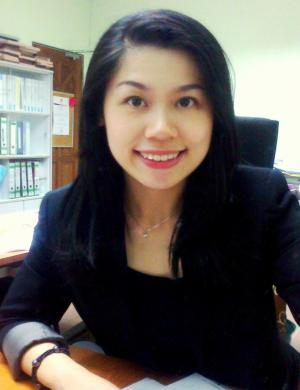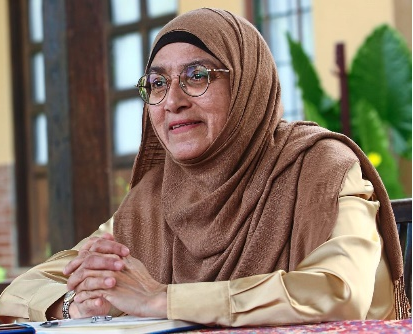
Assoc. Prof. Romana Yasmin Khan
Zhang Daqian Fine Art department , Neijian Normal University, China

Research Area:
Environmental Art /Public art
Research experience:
My study theme is “public art activities in rural area to improve life of craftsmen community and fill the gap between rural craft community and tourists and consumers from big cities.” My PhD thesis title is “Indigenous Interior Decoration Craft are deteriorating: Needs of Cooperative Activities in rural areas through Public Art to Revitalize the (cottage Industry) Indigenous Handicraft Centers in Pakistan.
Study investigated the traditional craft decline issues occurring due to less appreciation of craftsmen community living in rural areas also study investigated a gap between artisans and consumer or tourist because of no infrastructure and poor management, so consumers are not aware of hardship of that community who living in rural area .study suggested the public art activities should be developed in rural area and developed art and craft center where tourist observe and experience it.I have done research in preserve traditional art heritage from foundation university Islamabad and Hazara University, Mansehera Pakistan. I also served as associate researcher in Hazara University Pakistan in school of Art and design.
Speech Title:
Designing “Culture” into Modern Product -Cultural Product Design
Abstract:
Today, cultural industries in more developed or developing countries receive special attention. The industry includes most economic and artistic activities, including handicrafts, music, film, printing, publishing and multimedia. A common feature of cultural industries is that they all use creativity, cultural knowledge and intellectual property to provide products and services of social and cultural significance. Recent international attention to cultural industries is considered part of an emerging global sustainable development strategy. Cultural and creative industries: The concept of "cultural industries" is almost synonymous with "creative industries". The former places greater emphasis on cultural heritage and artistic and traditional elements, while the latter emphasizes the creative talents and innovation of individuals and the use of intellectual property rights.
Assoc. Prof. LOO FUNG YING
University of Malaya

Research Area:
Taichi in Application to Piano Pedagogy、Composition、Piano Performance、Ethnomusicology
Research experience:
Loo Fung Ying is Associate Professor of ethnomusicology at Universiti Malaya, Malaysia. She obtained her Bachelor of Music at Universiti Putra Malaysia, and received her M.Mus from the Royal Welsh College of Music and Drama and Ph.D at the University of Sheffield. The themes of her scholarly studies include Malaysian Chinese music, Malaysian musical theatre, Taichi in application to performance practice, and experimental studies in music psychology and education. Fung Ying has published articles on cultural musicology and performance practice in journals including Asian Theatre Journal, Musica Hodie, Muzikološki Zbornik, and International Review of the Aesthetics and Sociology of Music, along with books and book chapters. Her research was supported by grants from the Malaysian Ministry of Higher Education and Universiti Malaya and some of her projects won her gold and silver awards at International research exhibitions. She is a reviewer and editorial board member of local and international academic journals and had supervised 39 postgraduate students to completion. Fung Ying was an active composer and musician too with the multiple award-winning Dama Orchestra (now Dama Asia Productions) before she joined University of Malaya in 2009, with over twenty productions to date, five albums and three sold-out musicals: Empress Wu, I Have a Date with Spring and Butterfly Lovers. An experienced lecturer, researcher and performer, she has held positions such as Deputy Director (Postgraduate and Research) of Cultural Centre, Universiti Malaya for a duration of 10 years, Chair of Academic Programmes Accreditation Panel (Malaysian Qualifications Agency), Internal Auditor of MYRA (Malaysia Research Assessment, Ministry of Higher Education), and Associate Editor of Malaysian Journal of Performing and Visual Arts.
Speech Title:
The Cultural-embedded Mobile Learning Model
Abstract:
The purpose of CDSD 2021 is to provide us a platform to broaden research ideas on three related fields: culture, design and social development. In this talk, I will revisit two theories in the 2000s: the idea of synergy by Bransford et al (2006) and cross-curricular approach in education by Kelly (2000), and explore these ideas in the cultural-embedded mobile learning model, with an aim to raise awareness of cultural heritage. Reviewing past literatures on heritage education, challenges in raising awareness of intangible cultural heritage were related to the development of popular culture, that led to cultural homogeneity and heterogeneity. Thus, as a theoretical study, I discuss how the cultural-embedded mobile learning model may be helpful in raising awareness of cultural heritage, and how the concept of synergy and cross-curricular approach are applicable by employing the “product placement technique” from business and marketing technique, “film music technique,” “edutainment,” and mobile learning concept. The model in the context of mobile learning adapts to the education 4.0 paradigm and is an indirect approach to learning and promoting awareness of cultural heritage.
Prof. SHAKILA PARWEEN BINTI YACOB
University of Malaya

Research Area:
Business History and International Business, Education and the new media, politics and comparative government, public policy
Research experience:
Professor Dr Shakila Yacob is a professor of business history and international business at the Department of History, Faculty of Arts and Social Sciences, University of Malaya. She was formerly the executive director of the International Institute of Public Policy and Management (INPUMA), University of Malaya. During her tenure as executive director (2018–2021), Shakila introduced several policy initiatives, including the bi-annual publication of the Policy Casebook Series; Policy Talks, a platform promoting collaborative policymaking; and PolicyPALS, a program to create interest in public policy among university students and secondary school leavers. Prior to this appointment, she served as the director of the Centre for Civilisational Dialogue, University of Malaya (UMCCD) (2016–2018). She was awarded the FY2015/2016 Fulbright Malaysian Scholar Program scholarship and was based at the University of Maryland in the United States (US) from October 2015 until July 2016. She has also held visiting scholar positions at universities in the United Kingdom (UK) and the United States (US). Shakila has gained the benefits of a multidisciplinary education in three different academic systems. After receiving her Bachelor of Arts (majoring in Southeast Asian Studies) from the University of Malaya, she pursued a Master of Arts in Political Science at Western Michigan University, United States (US). She received her doctorate (PhD) in Management at the Henley Business School, University of Reading, United Kingdom (UK). As both a business historian and political scientist, Shakila’s research interests are in business history, international business, comparative politics, critical thinking, and public policy. She is well published in peer-reviewed journals and books both locally and internationally. In her groundbreaking book titled The United States and the Malaysian Economy (2008) (Routledge Studies in the Growth Economies of Asia), she examines US foreign direct investment (FDI) in colonial Malaya and post-colonial Malaysia. Her published works on the history of international business in Malaysia are now linked with her research on history, politics and public policy. One of her most cited works is a seminal study on “The ‘Unfinished Business’ of Malaysia's Decolonisation: The Origins of the Guthrie Dawn Raid' (Modern Asian Studies, 44.5, 2010), with co-author Nicholas J. White. Her secondary interests are in history, new media, politics, and public policy, including the application of critical thinking skills in teaching and learning history, politics, and public policy.
Speech Title:
Gender, Entrepreneurship, and family business in the Southeast Asian halal beauty sector
Abstract:
Small businesses play a vital role in the Southeast Asian economy. Studies suggest at least 80-90 per cent of these firms are mainly owned and controlled by families. Most of these businesses are in the food manufacturing, restaurants, retail, accommodation, as well as cosmetics or beauty products. Interestingly, a sizeable portion of these family firms are owned and managed by women entrepreneurs. There is now much new research on family firms, especially in Europe and Latin America. However, gender-based family businesses have been under researched in Southeast Asia. These relatively new start-ups are highly entrepreneurial, and some successfully penetrated the international market. This study focuses on small family businesses owned by women in the halal beauty sector in Malaysia and Indonesia, employing important themes such as heritage and indigenous knowledge (regional perspective), religion (halal concept) and ethnicity. This study argues that beauty companies in the developing economies of Southeast Asia were able to challenge global “notions” of beauty by the much established western and Japanese beauty brands. This research on the beauty industry provides an example where the combinations of “warisan” (heritage), halal and local ingredients showed a way for small gender-based local firm to fight back. Indigenous branding is a competitive advantage, at least in certain conditions and if quality can be maintained.
Associate Professor. Christopher Williams
Huashang College, Guangdong University of Finance & Economics

Research Area:
Impact of China’s development on Africa, Economics; Management; American History, British History
Research experience:
Christopher Williams is professor, lawyer, and a consultant. He has taught in China for over a decade, working in Beijing, Shenyang, Guangzhou, Zhuhai, and Wenzhou. In the classroom, Williams has taught courses in American literature, Business Law, and US Constitutional law, amongst others. As a scholar, Williams has delivered papers at conferences in the United States, Africa, and China.
Williams is currently working on a documentary titled “W.E.B. Du Bios’ China Africa Prophecy.” The objective of the film is to inform the public that W.E.B. Du Bios foresaw that China’s model of development would provide an alternative to other developing nations.
When Williams first arrived in China in February 2004, he could never have imagined that he would spend over a decade living in contrasting regions and cities, while acquainting himself with various kinds of teas. Another realization that Williams had is that he could never have imagined that he would develop into a zhong guo tong, a China expert.Williams earned his B.A. in Social Thought and Political Economy from the University of Massachusetts at Amherst and his J.D. from the University of Michigan Law School, Ann Arbor. Currently, Williams is an Associate Professor at Huashang College, Guangdong University of Finance and Economics in Guangzhou.
Speech Title:
Culture, Design and Development in Shenzhen